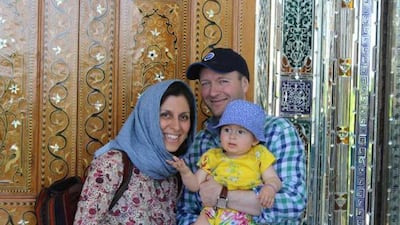Britain’s failure to include senior figures in the Islamic Revolutionary Guard Corps in its new sanctions is a “striking omission” that must be addressed, the head of a parliamentary committee said.
No senior Iranian leaders were listed among 49 people and organisations from countries including Russia, Myanmar and North Korea as the UK embarked on its own independent sanctions programme outside the EU.
MP Tom Tugendhat, the committee’s chairman, said the process was suited to punishing Iranian leaders for the regime’s dire human rights record, including jailing dual citizens for political purposes and the death penalty.
In a letter to the Middle East Minister James Cleverly, Mr Tugendhat said his committee was “hopeful that the next round of designations will address what seems like a striking omission” from the list.
The new powers would allow Britain to freeze the assets of identified human rights abusers and restrict their ability to travel.
Rights groups told the committee that the UK should apply them to security forces, judges and diplomats involved in the wrongful detention of British-Iranian citizens inside Iran.
Those arrested, including charity worker Nazanin Zaghari-Ratcliffe, have been used as bargaining chips in diplomatic battles between the two countries.
The US bolstered laws to enact a global human-rights sanctions regime, named after the Russian corruption whistle-blower Sergei Magnitsky, in 2016.
Other countries have followed suit, including the UK and Canada. The EU passed its own version of the Magnitsky Act in 2019.
Mr Cleverly cancelled a planned appearance before the committee this month, at which he had been due to discuss the issue and possible proscription of the Revolutionary Guard.
Parts of it have been singled out by the EU but only the US has proscribed the group entirely.
Mr Tugendhat likened the situation of the IRGC to that of Hezbollah. The US proscribed all branches of the militant group in 1995 but the UK did not follow suit until last year.
“The committee is concerned that a similar amount of time is not wasted in the case of the IRGC,” Mr Tugendhat wrote in his letter.
Kasra Aarabi, an analyst for the Tony Blair Institute for Global Change, told MPs the case for proscribing the group was hard to ignore.
“Proscribing the IRGC would not close the door to diplomacy with Tehran,” Mr Aarabi said.
“Rather, it would send a strong and clear message to Ayatollah [Ali] Khamenei that the regime’s militancy and terrorism, which is pursued via the IRGC, will not be tolerated.”
But Aniseh Tabrizi, from defence think tank the Royal United Services Institute, said proscription by the US had not weakened the group, nor reduced its activities and influence in the region.
“This has only contributed to further escalate tensions between the two sides, with the risk of military confrontation significantly increasing following the killing of [senior IRGC commander Qassem] Suleimani,” Ms Tabrizi said.


